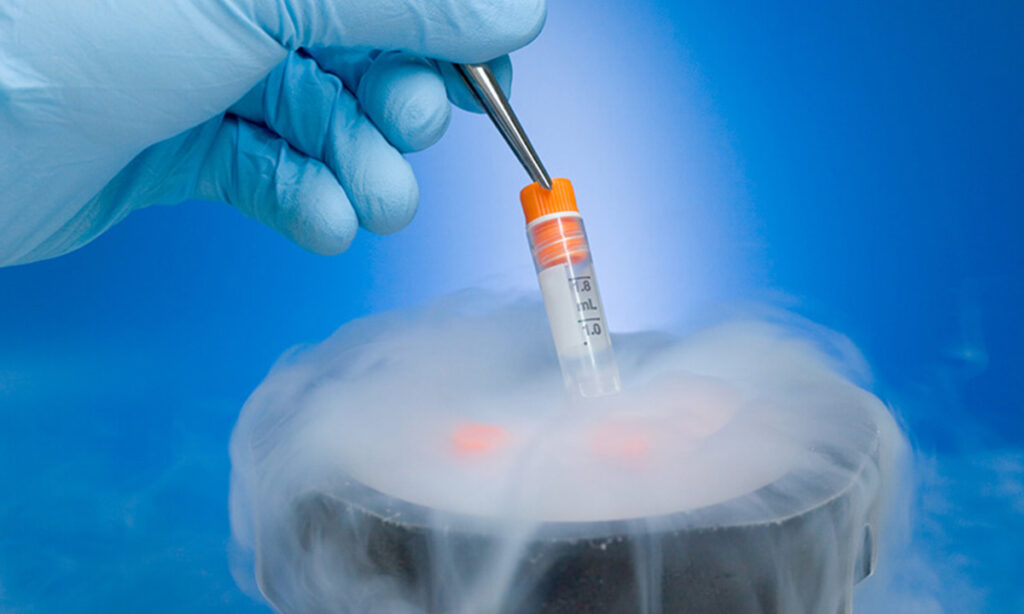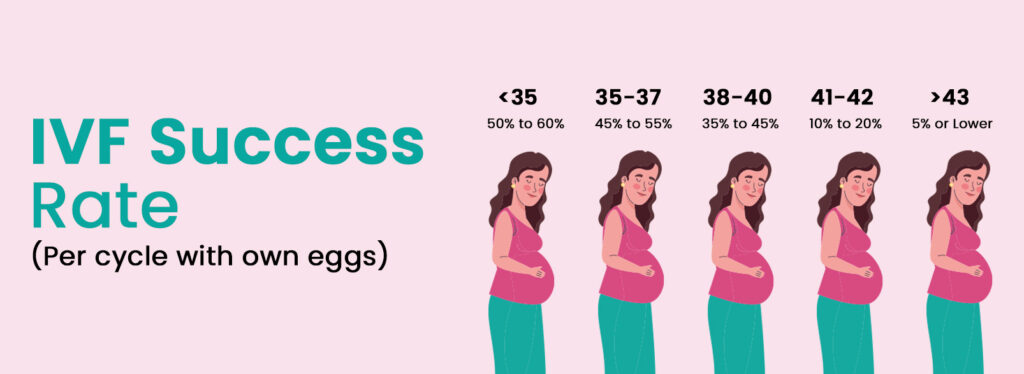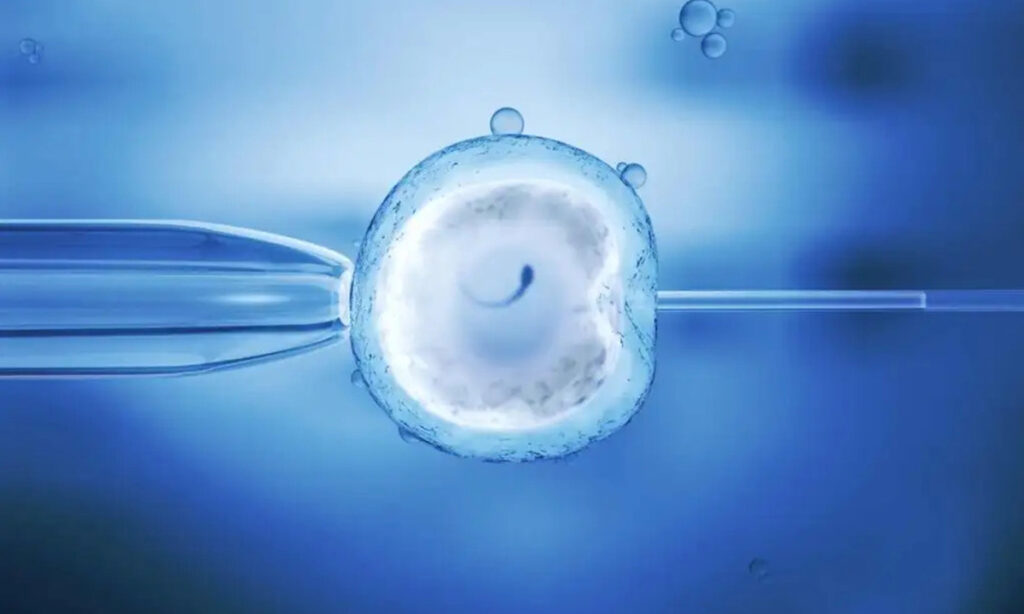
The decision to start a family is something deeply personal. It’s often influenced by career aspirations, personal relationships, and health conditions. Thanks to progress in assisted reproductive technologies such as In Vitro Fertilisation (IVF), numerous individuals and couples are considering these methods to achieve their parenting dreams. A key question that often comes up in this process is: What is the best age for IVF treatment?
At Dr. Sabia Mangat’s fertility clinic in Chandigarh, we understand that timing can be everything. This detailed guide is designed to help you understand the relationship between age and IVF, regardless of whether you are in your late 20s or early 40s. It covers how age affects your chances, the scientific insights, and the options available to you.
Why Age Matters in IVF
Age is a key factor in fertility, both naturally and with IVF. As women get older, the quantity and quality of their eggs decrease. This reduction impacts:
• Egg Quality: Older eggs are more likely to have chromosomal issues.
• Embryo Implantation: The uterine lining becomes less welcoming as women age.
• Miscarriage Rates: The likelihood of miscarriage rises with the mother’s age.
• IVF Success Rate: The overall probability of achieving a successful pregnancy diminishes with age.
Knowing the best age for IVF treatment can help you make informed and realistic decisions about family planning.
What Is the Best Age for IVF Treatment?
Experts believe that the best age for IVF treatment is from 25 to 35 years. In this time frame:
• Ovarian Reserve: More viable eggs available.
• Egg Quality: Best quality for fertilisation.
• Uterine Health: Improved receptivity for embryo implantation.
• Hormonal Balance: More stable hormonal conditions.
Women in their 20s and early 30s usually respond positively to ovarian stimulation and tend to have a greater number of healthy eggs collected during the IVF process. This greatly enhances the likelihood of successful fertilisation and implantation.
IVF Success Rate by Age:
| Age Group | IVF Success Rate (per cycle with own eggs) |
| <35 | 50% to 60% |
| 35–37 | 45% to 55% |
| 38–40 | 35% to 45% |
| 41–42 | 10% to 20% |
| >43 | 5% or lower |

This data shows how the IVF success rate by age declines gradually after 35 and sharply after 40.
Age Limit for IVF with Own Eggs
The age limit for IVF with own eggs differs by country and clinic. In India, many fertility clinics recommend that women under 45 pursue IVF with their own eggs. Nevertheless, the success rates decrease notably after the age of 38. Women over 40 might be advised to look into using donor eggs for better success rates.
Maximum Age for IVF in India
According to the National ART Registry of India (NARI), the legal age limit to undergo IVF is 50 years for women and 55 years for men. However, most ethical clinics, including ours, recommend IVF with own eggs up to age 42–45 only. After this age, the quality of eggs starts to decline drastically.
IVF After 35 – Is It Still Possible?
Yes, IVF after 35 is feasible and becoming more common. Many women today successfully conceive in their late 30s and early 40s with medical help.
However, it’s crucial to know:
• Fewer Eggs Retrieved: The number of eggs declines with age.
• Higher Risk of Chromosomal Abnormalities: Greater chances of genetic problems.
• Increased Miscarriage Rate: More likelihood of losing a pregnancy.
To improve results, doctors might suggest genetic testing (PGT-A), embryo freezing, or using donor eggs based on your situation.
When Is the Best Time to Get IVF?
From a medical point of view, the best time to get IVF is when:
• You are under 35.
• Your AMH and FSH levels are normal.
• You’ve been trying to conceive for over a year without success.
• You have issues like PCOS, endometriosis, or unexplained infertility.
Starting early gives you the best chance, both emotionally and physically.
Understanding Ovarian Reserve and Its Impact on IVF Success
A woman’s ovarian reserve indicates the number and quality of her remaining eggs. As women get older, these aspects decrease, impacting fertility. By the age of 30, a woman usually has around 12% of her ovarian reserve, which drops to about 3% by age 40.

To evaluate ovarian reserve, fertility experts often check Anti-Müllerian Hormone (AMH) levels and perform antral follicle counts using ultrasound.
AMH levels give information about the remaining egg supply, aiding in predicting how a woman may respond to ovarian stimulation during IVF. However, it’s important to understand that while AMH is a helpful indicator, it doesn’t ensure IVF success, as other factors such as egg quality and uterine health are also very important.
The Role of Male Age in IVF Outcomes
Although there is a strong focus on the age of women in fertility talks, the age of the male partner also plays a crucial role in the success of IVF. As men get older, the quality of their sperm can deteriorate, resulting in higher DNA fragmentation, which can impact embryo growth and implantation success rates. Studies indicate that men over 40 may see a drop in sperm motility and an increase in sperm DNA fragmentation, which could lower the likelihood of successful fertilisation. Thus, assessing male fertility factors is an essential part of the IVF process, particularly when the female partner is older.
Leveraging Advanced Technologies to Improve IVF Success Rates
Improvements in reproductive technology have greatly enhanced IVF results, especially for older couples. One innovation is the application of Artificial Intelligence (AI) in choosing embryos. AI-driven systems examine embryo growth patterns to forecast their viability, helping embryologists pick the best embryos for transfer.
Moreover, Preimplantation Genetic Testing for Aneuploidy (PGT-A) enables the examination of embryos for chromosomal issues before transfer. This method is particularly useful for women over 35, as it assists in identifying embryos with the best chances for successful implantation and a healthy pregnancy.
By incorporating these advanced technologies into IVF procedures, clinics can boost success rates, minimise the number of cycles needed, and enhance the chances of a healthy live birth, even for older parents.
These findings highlight the complex nature of IVF treatment and the significance of tailored strategies that take into account both partners’ ages, ovarian reserve, and the advantages of modern technologies.
FAQs
1. What is the best age for IVF treatment?
The ideal age is between 25 and 35, as egg quality and ovarian response are optimal.
2. What is the best age for IVF treatment success rate?
IVF success rate by age is highest in women under 35.
3. When is the best time to get IVF?
When you have tried naturally for over a year and are under 35 and you have several failed IUI cycles or have known fertility issues.
4. Is IVF possible after 35?
Yes, many women conceive through IVF after 35. However, success rates decline with age.
5. Is IVF painful?
The injections may cause mild discomfort. Egg retrieval is done under sedation and is painless.
6. Are IVF babies normal?
Yes. IVF babies are as healthy and normal as naturally conceived babies.
7. Is donor egg more successful?
Yes. IVF with donor eggs, especially from young donors, increases success rates significantly.
8. What does IVF cost?
IVF cost in India ranges from ₹90,000 to ₹2.5 lakh per cycle, depending on medications, lab work, and treatment type.
9. What are the 5 stages of IVF?
- Ovarian stimulation
- Egg retrieval
- Fertilisation in the lab
- Embryo transfer
- Pregnancy test
10. How many injections for IVF treatment?
Generally, 8 to 12 hormone injections are required during ovarian stimulation.
11. Whose sperm is used in IVF?
The male partner’s sperm is usually used. Donor sperm is used in specific cases after couple ‘s written and informed consent.
12. What are the side effects of IVF?
Common side effects include bloating, cramping, mood swings, and mild bruising at injection sites. Serious side effects are rare.
Final Thoughts: Don’t Let Time Decide for You
IVF brings great hope, but its success is heavily influenced by age. If you are considering fertility treatment, starting sooner increases your chances. At Dr. Sabia Mangat’s clinic, we offer fertility counselling that is appropriate for your age and provide clear care tailored to your specific needs.
Keep in mind, the best age for IVF treatment isn’t merely a figure; it also involves your health, emotional readiness, and the support you have. Schedule a consultation with Dr. Sabia today for personalised guidance to take charge of your reproductive future.
If you live in Chandigarh or nearby areas like Mohali, Panchkula, Zirakpur, Kharar, or Baddi, our fertility clinic is ready to assist you in beginning your journey with confidence.
